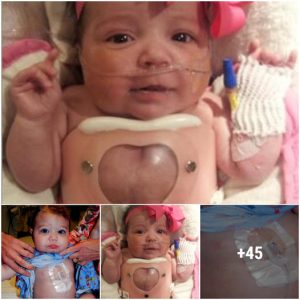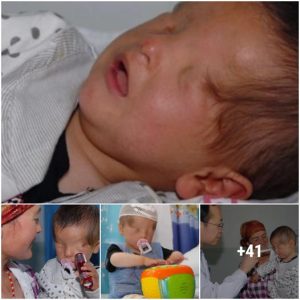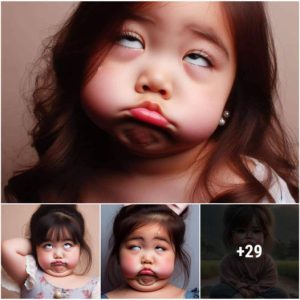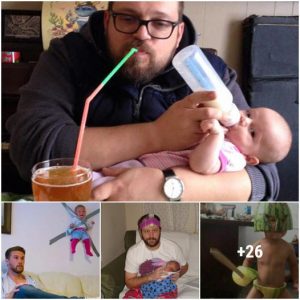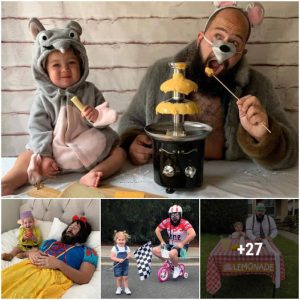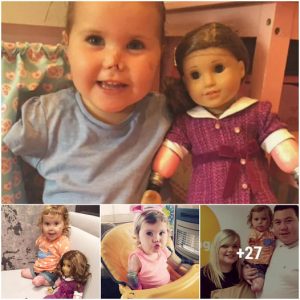
Gina Dewdney, 34, was constantly tired during her pregnancy, napping twice a day and struggling to sleep at night – before realising she was carrying not one but three babies. She has given birth to a ‘one in 200million’ set of identical triplets who shared the same placenta. The three boys — Jimmy, Jensen and Jaxson — were born a month early at Liverpool Women’s Hospital on April 26.

The trio were delivered via C-section within seconds of each other to parents Gina and Craig Dewdney. The couple, from Cheshire, was shocked to learn at a 13-week ultrasound that they weren’t just expecting their first child — but first three.

Mrs Dewdney revealed 30 medics were in the delivery room because each baby had to have its own neonatal team. Her pregnancy was deemed ‘high risk’ because the youngsters were found to be sharing the same placenta. Children born this way are more likely to face issues because the nutrients and food from the mother has to be split three ways. Most triplets are conceived through IVF and doctors estimate the odds of having three identical children naturally is as low as one-in-200million. And the chance of all three babies sharing a placenta is even smaller.

What makes the trio even more unique is the fact Jaxson had his own amniotic sac, a thin-wall of plasma that surrounds the foetus during pregnancy. They are what is known medically as monochorionic diamniotic triplets, where three babies share one placenta but one of them has their own amniotic sac. Jimmy, Jensen and Jaxson were born in exactly one minute and 52 seconds from the ‘time the knife went in’. The babies, who are now five-months-old, spent six weeks in the neonatal intensive care unit but have since come home and are returning for regular check-ups.

Mrs Dewdney said breastfeeding and lack of sleep has proven difficult, but the babies have started to develop individual personalities. She said: ‘They’re starting to smile now and starting to see their characters. ‘What is interesting is they are all identical and DNA is the same, but they’ve got such different personalities already. ‘I think that is fascinating because they are all being brought up the same and you think of nature versus nurture.’

Share or comment on this article: British Mother In Shock After Giving Birth To One-In-200Million Identical Triplets
